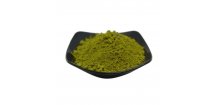What information about kratom in the media is true and what is not? Answering this question is one of the main goals of this article. Read a thorough analysis of media coverage and misinformation regarding kratom. So that you can better understand how the media presents the phenomenon and what myths are associated with it.

Is all about kratom in the media true?
Let us answer this key question straight away. Much of what you hear or read about kratom in the media is definitely not true. And we're talking about mainstream media entities like state television and the like.
Of course, that doesn't mean that everything is made up, we certainly don't claim that.
The problem is that biased media reporting on the effects of kratom likes to exaggerate, and hypocritically ignore the harmfulness of other freely available substances.
A good example is the main TV and radio channels in the Czech Republic (where Kratomit is based). When, very occasionally, someone has a negative experience with kratom, they like to report about it immediately, and very colourfully.
For example, the news that a child ended up in hospital after taking kratom has been reported here more than once. Then, when you find out more about it, you see that the child either ingested alcohol too, or extremely overdosed on kratom. At the same time, you also won't hear on the news that dozens of kids ended up in the detention center on the same day because of alcohol (at least if we're talking about Fridays). And you'll hear something similar about adults from time to time, of course.
It should be mentioned that we at Kratomit are strongly in favour of banning kratom from children worldwide. In most European countries kratom is already regulated. The conditions should be (at most) as strict as for alcohol and tobacco products, which are much more harmful substances, but let's assume that kratom can be classified as one of them due to its mild addictiveness.
Common misinformation and myths about kratom
For the sake of clarity, let us now say what are the most common and most serious misinformation that will often be foisted on you.
.jpg)
It's an opiate:
Kratom may act on opioid receptors, but it's not an opiate because of that. Kratom contains alkaloids that produce an opioid-like effect.
But it doesn't have the same harmful properties or high potential for addiction as traditional opioids.
It has no medicinal use:
Despite scepticism, kratom is used by many as a natural remedy for a variety of conditions. These include fighting pain, depression, and anxiety. It is worth noting that it is sometimes used in rehab.
It is often portrayed as having no therapeutic effects. This overlooks the experiences of those who use it therapeutically.
Highly addictive:
Kratom can certainly lead to addiction when used incorrectly, overused, let's say. But its addictive potential is often overestimated compared to other substances that act on opioid receptors. It's impossible to objectively determine the exact threshold at which kratom can be addictive, but using common sense, you probably won't get addicted to it.
We do not claim, unlike some, that it is as low-addictive as coffee; in fact, many people will find kratom a bit more addictive. But it certainly doesn't compare to something hard.
Completely safe:
At the same time, some overly optimistic views need to be refuted. Some sources may inaccurately present kratom as completely harmless. Like any substance, kratom has potential side effects.
It can cause nausea, constipation and withdrawal symptoms, and can interact negatively with other medications. Also, the negative effect on the liver is probably not completely negligible – with excessive use. Again, it should be mentioned that you just need to use common sense and be cautious.
Causes numerous deaths:
reports sometimes link kratom to numerous deaths. However, in many cases where kratom was present, other more potent substances were also involved, making it difficult to attribute these deaths directly to kratom alone.
However, there has perhaps never been a case where someone has died purely because of kratom. Compared to better perceived substances in the media, such as alcohol, these are absolutely ridiculous numbers, zero to nothing.
No research or evidence:
It is repeatedly claimed that no scientific studies support the use or safety of kratom. In fact, there are ongoing studies examining its effects. Just use Google, you will find plenty of studies...
But more research is needed to fully understand its benefits and risks, and there are not as many scientific studies as we would like.
Expert studies examining kratom
Are you not convinced that what we write here is not entirely true? We understand that, you need to keep a suspicious perspective and be objective. Whether it's the mainstream media or articles like this one. That's why we encourage you to read real peer-reviewed studies. They will open your eyes - certainly more than the evening news.
In this article we have the data we read in these studies, but if you have time, we recommend you read them:
- NIH Record: McCurdy Studies Whether Kratom Can Reduce Opioid Withdrawal, Ease Pain
- SAGE Journals: Kratom (Mitragyna speciosa): User demographics, use patterns, and implications for the opioid epidemic
- NCBI: Pharmacology of Kratom: An Emerging Botanical Agent With Stimulant, Analgesic and Opioid-Like Effects
- APLP: Farmakologie a toxikologie kratomu (Mitragyna speciosa)
- FIS: Mitragynine (Kratom) – Monitoring in Sports Drug Testing
- UTHSCSA: Kratom: A Systematic Review of its Clinical, Pharmacological, and Behavioral Effects in Humans
- Universiti Putra Malaysia: The Potential of Kratom as an Antidepressant and Antipsychotic
Takeaways
Overall, if you're asking if all the information about kratom in the media is true, the answer is no.
While some information may be based on truth, there is a significant degree of distortion and exaggeration. We can argue about the reasons for doing so... The media often disregards people's positive experiences with kratom and overlooks its potential therapeutic uses.
At the same time, negative reports are often exaggerated without adequate context about other influencing factors such as current alcohol consumption.
It is important to approach information about kratom critically and try to distinguish between verified facts and media sensationalism. Only in this way can a correct understanding of this complex issue be achieved. And if you use kratom, just find the optimal dosage for you, know your limits. Too much of everything is harmful.
Our tip: If you want to know more about kratom overall, we recommend you read our article on “what is kratom”.









